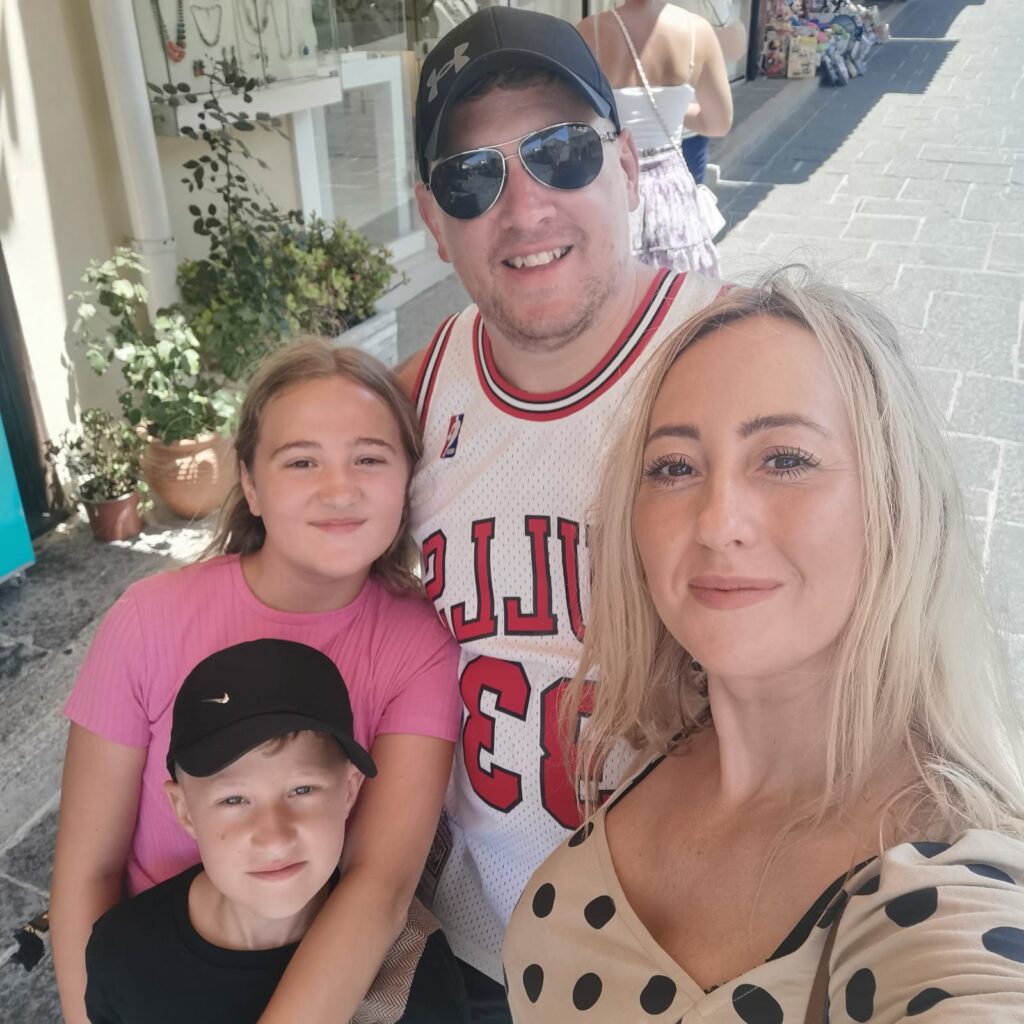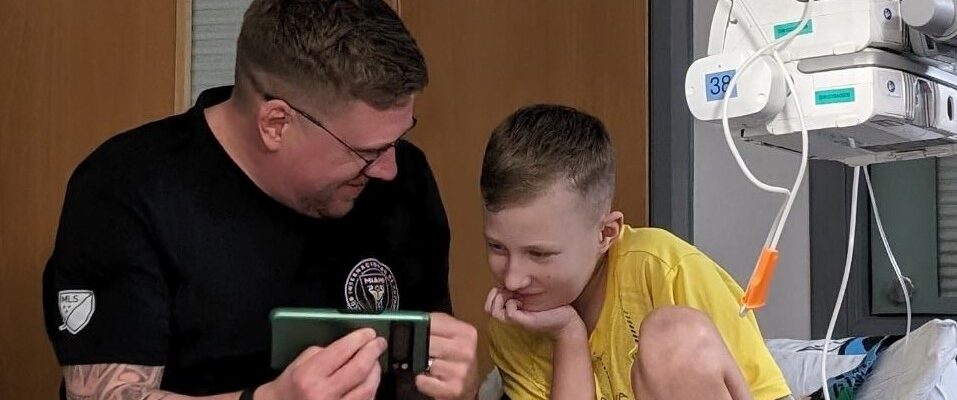A nine-year-old boy with a rare genetic condition has become the youngest in the UK to undergo an operation at Newcastle Hospitals to remove his pancreas and transplant his own insulin producing cells at the same time.
Archie Routledge, from Workington, Cumbria, carries a rare genetic mutation which causes hereditary pancreatitis, a serious condition where the pancreas becomes inflamed, causing significant abdominal pain and carries a significantly increased risk of pancreatic cancer later in life.
The youngster spent five months in the Great North Children’s Hospital with pancreatitis and was unable to eat, receiving nutrition only through a drip. Surgeons were able to use a small window of time when the pancreas had slightly recovered to carry out the life-saving operation.
During the procedure, called a total pancreatectomy and autologous islet cell transplant, the specialist team removed the pancreas, harvested those insulin-secreting islet cells from the pancreas, then reinfused those cells back into the liver to find a home and help manage blood sugar by producing insulin.
Professor Steve White, consultant in hepato-pancreato-biliary and transplant surgeon at Newcastle Hospitals, was involved in the first operation of this kind when he was training in Leicester. He has since carried out this complicated procedure for mainly adults in the north east.
Professor White said:
“Archie has a rare mutation which caused him to have repeated inflammation of the pancreas and had been in hospital for over five months which was a real strain for his whole family who live in Cumbria.
“We had a window of opportunity when his pancreas settled down to operate and perform the transplant.
“Taking out someone’s pancreas makes the individual diabetic, so they must then take insulin to prevent them having complications such as blindness and kidney failure.
“To help reduce the risk of diabetes, during the operation once we had removed the pancreas, we isolated the islet cells at the Centre for Life. The islets, which produce insulin, were then returned whilst the operation was still underway, and injected into the liver, so Archie can produce some of his own insulin. They will survive for many, many years and help to control Archie’s blood sugar levels.”
He added: “We are quite unique in Newcastle as we have the skills to do many different types of complex transplant operations.”
The cells were isolated by scientists from the Trust’s advanced therapies team in specialist GMP – good manufacturing practice – lab facilities at the Centre for Life.
The 15-hour surgery saw Professor White lead a team involving paediatric surgeon Liz O’Connor who performed Archie’s previous surgery, along with another surgeon Professor Sanjay Pandanaboyana, anaesthetists, pain specialists, psychologists, diabetes specialists, gastroenterologists and scientists.
Archie is now recovering at home and is making good progress.
“He still needs insulin as his pancreas was extremely damaged from the rare condition and it is hard to isolate the islet cells. Over time he’ll have better control of his diabetes because he has some of his own cells still producing insulin.”

After a total of six months, being so far away from home, the family was allowed to take Archie back home to Workington.
Archie’s mum Emma, said: “Being away from home and our daughter with the stress of fighting for the operation was a really tough time for our family. We are beyond relieved that we no longer need to fight the battle of pancreatitis and Archie can live his life pain free.
“We hope that the breakthroughs in this surgery enable other children suffering from pancreatitis to recover and carry on with their lives.”
Archie now takes medicine and is gradually settling back into life at home with his family.
